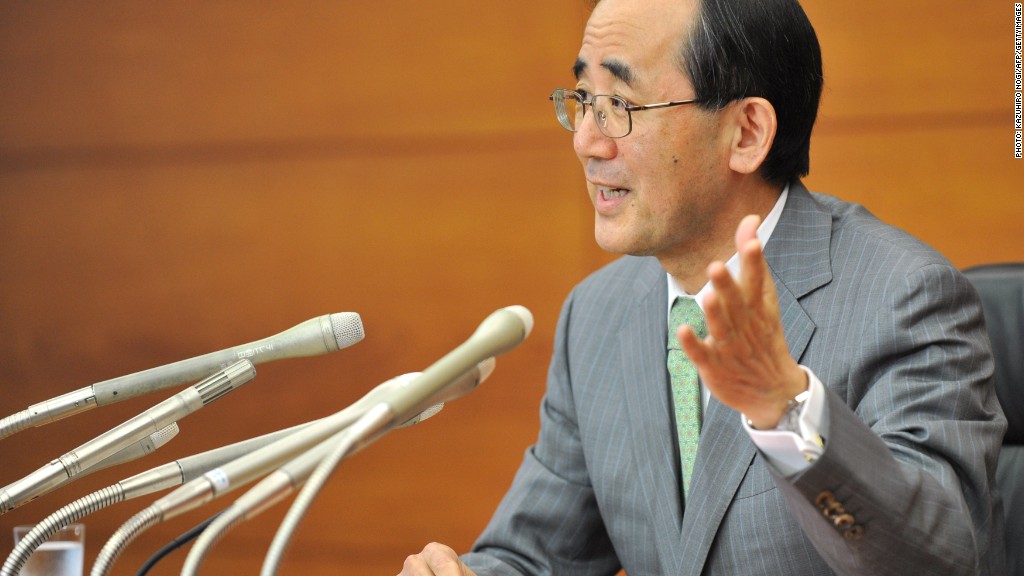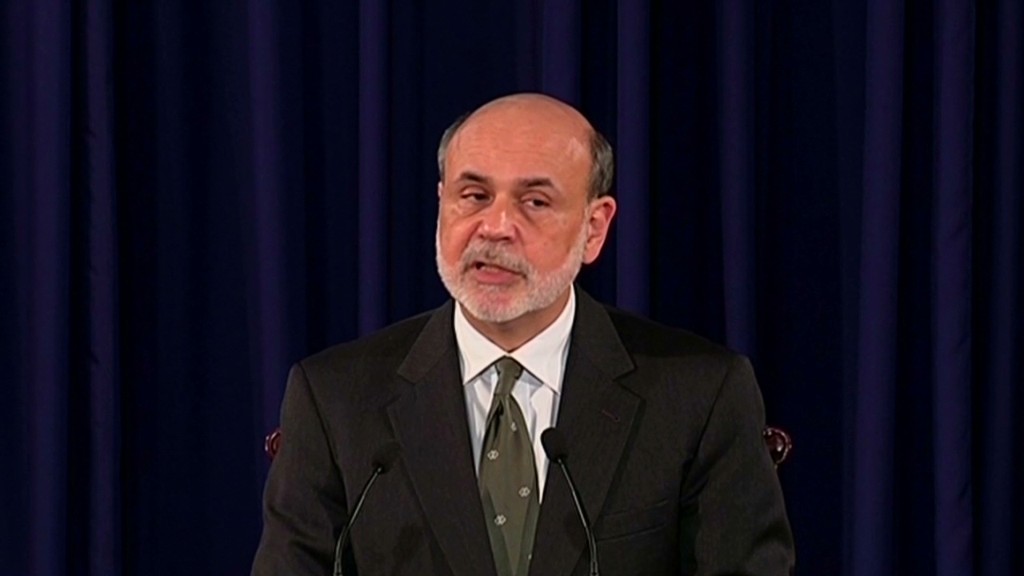
The Bank of Japan announced Wednesday that it would expand its asset purchase program by 10 trillion yen in an effort to stimulate its economy as global demand slows.
The announcement comes less than a week after the U.S. Federal Reserve announced its latest stimulus plan, and two weeks after the European Central Bank revealed its new bond-buying program.
Japan's central bank said it would ramp up its current bond buying program from 70 trillion yen to about 80 trillion yen, a difference of $126 billion.
The purchases -- which include T-bills and government bonds -- will be completed by the end of 2013. The vote to ease monetary policy was unanimous, the bank noted. Key interest rates were left unchanged.

Still, the monetary easing provided some comfort to investors. Japan's Nikkei closed up 1.4%, while exchanges in Hong Kong and Shanghai were in positive territory on the day.
The efforts made by central banks to spur growth come amid continued weakness across the globe. China's economy -- the second largest in the world -- has hit a rough patch.
Related: China growth forecasts shrink as economy stumbles
Meanwhile, European policymakers continue to struggle with the continent's debt crisis.
"There remains a high degree of uncertainty about the global economy," Japan's central bankers said Wednesday in a statement.
The Fed's policy, known as quantitative easing and often abbreviated as QE3, entails buying $40 billion in mortgage-backed securities each month. The end date remains up in the air, as the Fed will re-evaluate the strength of the economy in coming months.
The purchases began Friday and are expected to add up to only $23 billion for the remainder of September.

